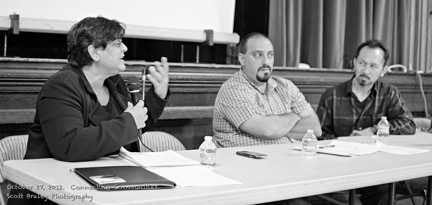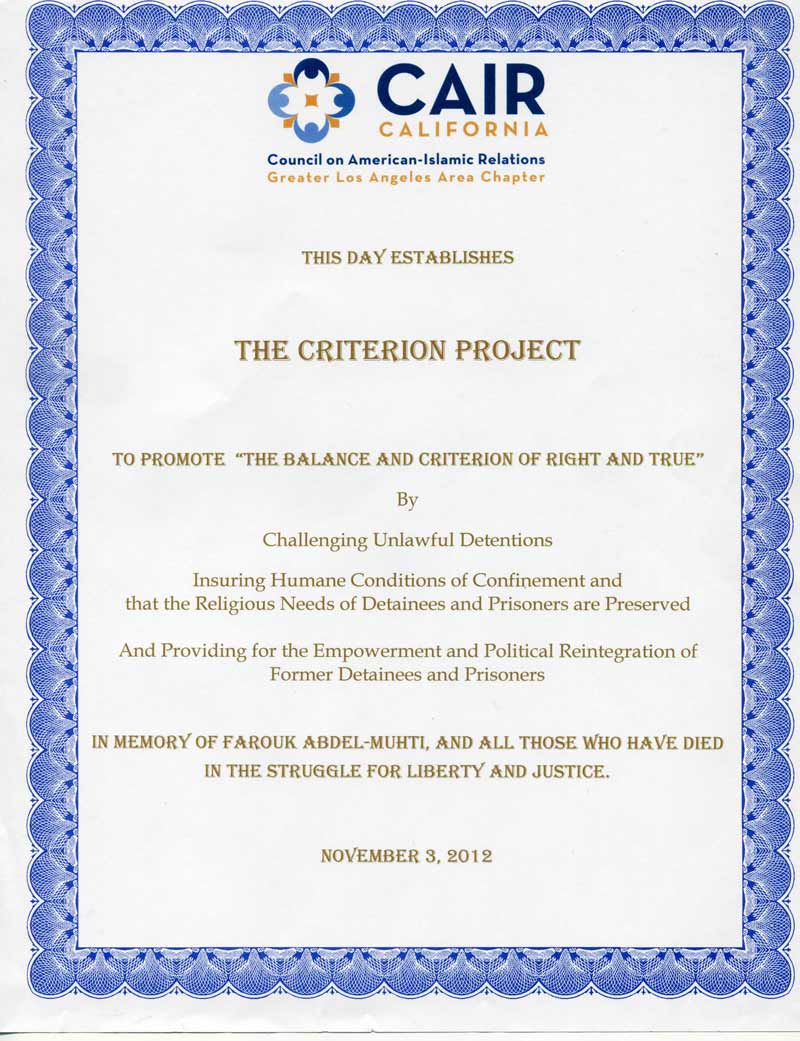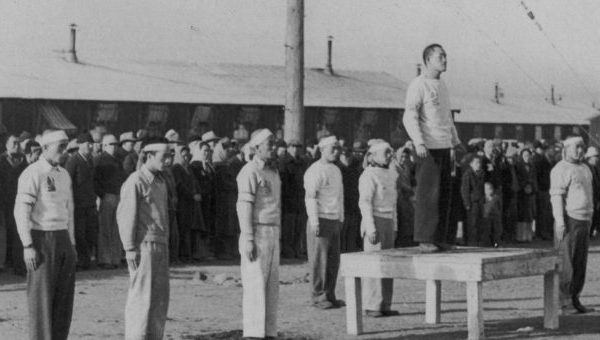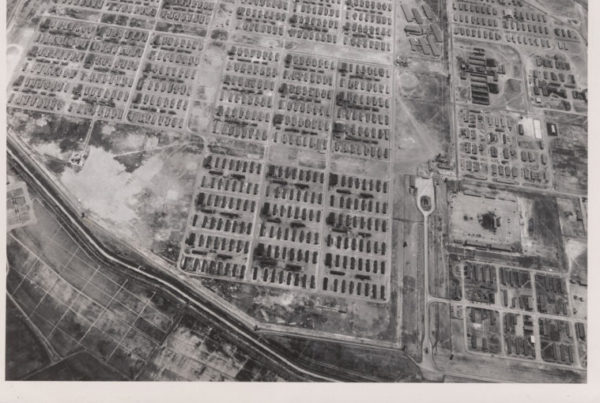2012 has been a breakthrough year for Enemy Alien as well as for Life or Liberty’s next project, the Tule Lake Documentary.
2012 has been a breakthrough year for Enemy Alien as well as for Life or Liberty’s next project, the Tule Lake Documentary.
by Konrad Aderer, director
Enemy Alien, the story of imprisoned Palestinian activist Farouk Abdel-Muhti, touches on the resistance of Japanese American incarcerees at Tule Lake Segregation Center as a precedent for Farouk’s struggle. What sets Enemy Alien apart from other documentaries on the targeting of Muslim immigrants from the beginning was its theme of resistance rather than passive endurance of injustice and abuse. Farouk was not a hapless cab driver focused on the American Dream, but a dedicated activist and open critic of U.S. policy.
Likewise, the stories featured in the Tule Lake Documentary upend the dominant narrative of how Japanese Americans coped with their incarceration in World War II. Rather than quiet acceptance or the patriotism of military service in the decorated 442nd regiment, these men and women embody courageous resistance which was met with severe reprisals and armed violence from the U.S. government.
July
At the 2012 pilgrimage to Tule Lake, participants saw and discussed Enemy Alien with me at two screenings. This trip was also a key stage in Life or Liberty’s next project, the Tule Lake Documentary (working title). I met more Tule Lake survivors, and witnessed some significant and moving moments showing major shifts in the community of former WW2 incarcerees.
The theme of the pilgrimage was “Understanding No-No and Renunciation”Starting in 1943, some 12,000 incarcerated people of Japanese ancestry were branded as “disloyals” because they refused to answer an unqualified “yes” to two key questions on an infamous “loyalty questionnaire.” After being segregated to the Tule Lake concentration camp, more than 5,000 applied to renounce their U.S. citizenship. The actions of incarcerees in this context had nothing to do with the government’s racist construction of “loyalty” and “disloyalty” but involved the need to protest the injustice of their incarceration and to safeguard their family members.
At the opening session, Tule Lake Committee member Barbara Takei asked the No-Nos and renunciants in the audience to stand and be recognized by the hundreds of other participants, who heartily applauded them. This was an epochal moment in the Japanese American community, where the need to show “loyalty” led to the exclusion and ostracism of the “no-nos.”
[watch video].
On the pilgrimage I also shot research footage for the Tule Lake Documentary, including views of the former camp site from the hike up Castle Rock.
September
On September 8, I went to Los Angeles for a screening of Enemy Alien at Japanese American National Museum, co-presented by CAIR-LA.
On that trip I interviewed eight former Tule Lake incarcerees in Sacramento, San Francisco Bay Area, and Los Angeles. These subjects included an eyewitness to the summary execution of an unarmed incarceree by a U.S. Army soldier, and renunciants who journeyed with their families to struggle for survival in war-torn Japan for years before returning to the U.S.
October-November
 |
| Dr. Rabab Abdulhadi, Hatem Abuddayeh and Konrad Aderer at Connecting Communities |
The Boston Palestine Film Festival co-presented Enemy Alien with the Boston Asian American Film Festival at Harvard Law School. The screening was followed by intensive discussion with Palestinians, Asian Americans and activists on the dangerous expansion of surveillance and illegal detention programs in recent years.
The Buena Vista United Methodist Church in Alameda, CA hosted Connecting Communities, a screening of Enemy Alien followed by a panel discussion to launch The Stories of Palestinian Diaspora, an alliance between the Buena Vista Community Institute (BVCI) and the Arab Muslim Ethnicities Diaspora (AMERD) project at San Francisco State University.
The event was covered on KPFK, the Pacifica radio station in Berkeley. [listen.] I was also interviewed by KPFK, broadcast in a later program [listen]

Also prominent in the discussion was the recent controversy over CAAM’s partnering with the Israeli consulate to present the Israel-China Film Festival. This major breach of the growing boycott, divestment, and sanctions (BDS) movement pointed up the need for more outreach and sharing between the Asian American and Palestinian communities. (disclosure: CAAM awarded a James Yee Fellowship for the development of Enemy Alien)
At CAIR-LA’s annual banquet, I was honored to receive a “Courage in Media” award for Enemy Alien. They also presented me with a certificate establishing the Criterion Project to help people unjustly detained, “In memory of Farouk Abdel-Muhti, and all those who have died in the struggle for liberty and justice.”


